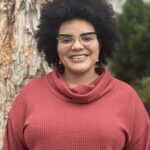FOR IMMEDIATE RELEASE
Contact: lppipress@luskin.ucla.edu
New UCLA LPPI and ASU CLAPR Research Showcases Latino-Led Economic Resilience in South Phoenix and Tucson
LOS ANGELES (August 22, 2025) — The UCLA Latino Policy and Politics Institute (LPPI) has released a series of briefs documenting Latino-led Economic Development (LLED) efforts in historically underserved communities. These briefs, released in partnership with the Arizona State University Center for Latina/os and American Politics Research (CLAPR), highlight Latino communities’ resilience, innovation, and community-driven strategies in South Phoenix and Tucson, Arizona neighborhoods during and beyond the COVID-19 pandemic.
The new LPPI analysis, authored by Cecilia Nuñez, Jennifer Uribe, Cristian Hernández, Chhandara Pech, Misael Galdámez, Paul Ong, Silvia R. González, and Francisco Pedraza combines quantitative and spatial data, historical analysis, and practitioner insights. These reports offer a roadmap for policymakers, philanthropists, and community leaders to support community-rooted economic development that prioritizes equity and community self-determination.
Tucson’s 12th Street corridor, also known as La Doce, is a historic, majority-Latino (88%) corridor that showed resilience through cultural and community networks. Key findings include:
- Disproportionate COVID-19 Health Impacts: In La Doce, case rates were nearly double Pima County’s (43,800 per 100,000 vs. 28,600 per 100,000), with death rates twice as high (800 per 100,000 vs. 400 countywide) due to limited healthcare access, environmental risks, and disinvestment.
- Business Stability: From 2019-2023, La Doce saw five times less net business growth, 2% compared to 10% countywide, but a lower turnover rate (49% vs. 59% countywide), reflecting stability from long-standing microenterprises.
- Limited Federal Relief: Businesses received $1,600 per job and $500 per resident in PPP funds, far below county averages ($3,793 and $1,344), due to barriers like language and documentation requirements for informal businesses.
- Short-Term and Long-Term Community-Led Solutions: CBOs like the Southwest Folklife Alliance and Regeneración provided mutual aid, including $500 cash grants to artists and vendors and the LOOM Market platform, while initiatives like the La Doce Barrio Foodways Project and community land trusts combat gentrification and preserve cultural identity.
South Phoenix, a predominantly Latino community (81%), navigated the pandemic with robust community networks. Key findings include:
- Severe COVID-19 Health Impacts: Case rates were 39,000 per 100,000, higher than Maricopa County’s 33,800, with death rates at 454 per 100,000 (vs. 413 countywide), driven by limited healthcare access and environmental risks like higher-than-average PM2.5 exposure.
- Small Business Challenges: From 2019-2023, South Phoenix businesses experienced a 1% business decline, compared to 9% growth countywide, and local businesses received just over half the PPP funds per job as businesses countywide ($2,400 vs. $4,400). These patterns reflect significant challenges for microenterprises, which make up 70% of South Phoenix businesses.
- Housing and Income Disparities: Only 46% of households own their homes (vs. 57% in Phoenix and 65% countywide). Median incomes are only $45,400 (59% of city median), and over half of renters spend most of their income on housing.
- Community-Driven Initiatives: CBOs like Chicanos Por La Causa and the South Central Collaborative provided mutual aid and shaped transit-oriented development, ensuring community input through education, surveys, and coalitions to prevent displacement and promote equity.
“South Phoenix and La Doce demonstrate the power of Latino-led coalitions to address systemic inequities through culturally-grounded strategies,” said Pedraza, an associate professor at Arizona State University’s School of Politics and Global Studies and director of ASU CLAPR. “These communities show that equitable economic development thrives when local knowledge and leadership drive solutions, offering a model for sustainable growth.”
Read the full data brief on South Phoenix here and Tucson here.
The series also includes parallel studies of San Ysidro (San Diego) and Fruitvale (Oakland). View that press release here.
About UCLA Latino Policy and Politics Institute
The UCLA Latino Policy and Politics Institute is a non-partisan research institute that seeks to inform, engage, and empower Latinos through innovative research and policy analysis. LPPI aims to promote equitable and inclusive policies that address the needs of the Latino community and advance social justice. latino.ucla.edu.

















